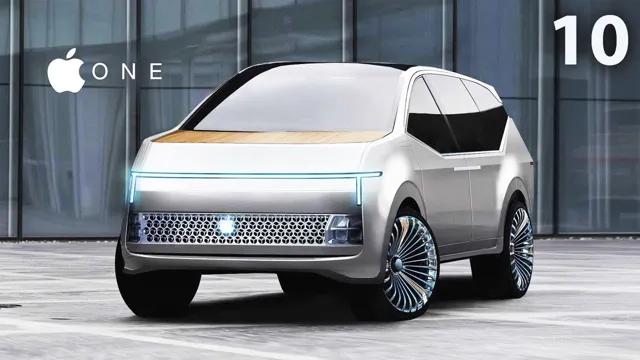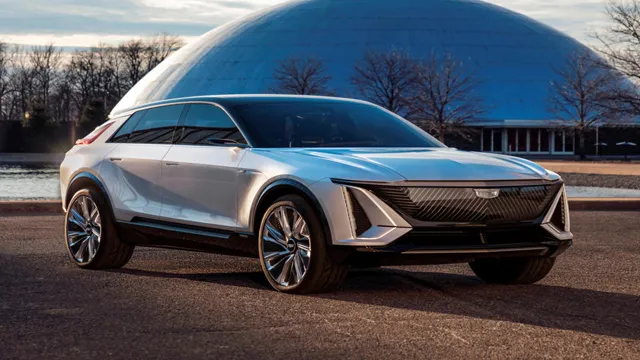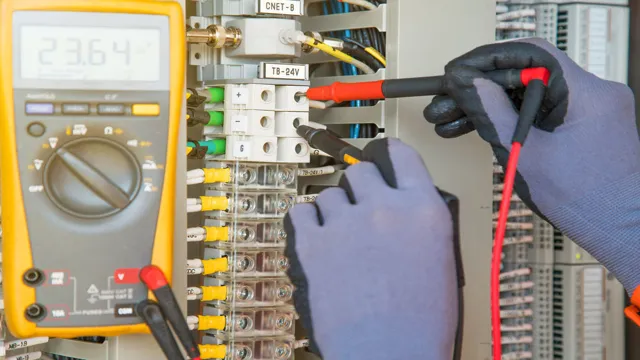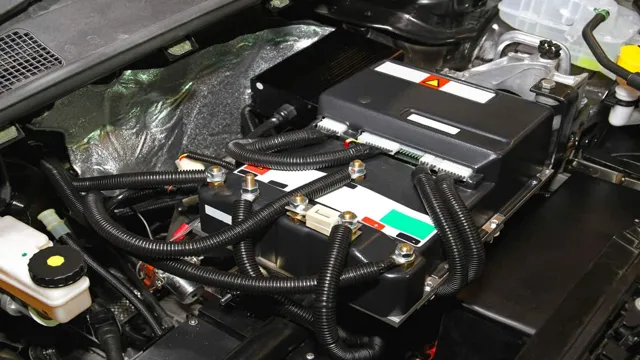Zoom into the Future with Electric Cars 2023: Your Ultimate Guide
Are you curious about the latest trends in electric cars? Do you want to know what to expect in 2023? Look no further because we have the ultimate guide to electric cars in 2023! Electric cars have been growing in popularity year after year, and 2023 will be no exception. With more manufacturers dedicating their efforts to producing electric cars and the advancement of technology, the future of electric cars is looking bright. In this guide, we will explore the most anticipated electric cars coming in 2023, including their features and specifications.
We will also dive into the strides the industry is making to make electric cars more affordable and accessible to the masses. We will touch upon the environmental impact of electric cars and how they are revolutionizing the way we think about transportation. We will also examine the charging infrastructure and how it is evolving to meet the demands of a growing population of electric car owners.
Whether you are a car enthusiast or someone who wants to make an informed decision about their next vehicle purchase, this guide is for you. So buckle up and get ready to explore the exciting world of electric cars in 2023!
Current Trends in Electric Vehicles
Electric cars have been gaining a lot of attention lately, and the trend is only expected to grow in the coming years. Looking ahead to 2023 and beyond, we can expect to see a couple of interesting developments in the electric vehicle (EV) market. One trend that will shape the industry is increased adoption of EVs by major automakers.
We are already seeing this trend with popular brands like Chevrolet, Porsche, and Ford all developing new electric models to compete with Tesla’s lineup. Additionally, advances in battery technology will make EVs more practical for longer trips. Range anxiety, which has been a major barrier to electric car adoption in the past, will become less of an issue as battery technology continues to improve.
Overall, the future looks bright for electric cars, and we can expect to see more options and better functionality as the market continues to evolve. So, it’s a perfect time to keep an eye on electric cars to make the right decision for your commuting needs.
2023 Electric Car Models
With the growing popularity of electric vehicles (EVs), there have been exciting developments in the automobile industry. It is expected that by 2023, several new electric car models will be released. Manufacturers are focusing on producing high-performance batteries and increasing the range of EVs, making them more practical and accessible to a wider audience.
Tesla and other automakers are competing to produce cheaper and more efficient EVs with longer battery life. Charging infrastructure is also expanding rapidly, with the installation of electric charging stations becoming more commonplace. As more people embrace electric cars, it is clear that the future of the automobile industry is electric.

Charging Infrastructure and Range
Electric Vehicles As electric vehicles continue to gain popularity, many drivers are wondering about the current trends in charging infrastructure and range. One major trend is the increasing availability of fast chargers, which can charge a car’s battery much more quickly than a standard charging station. In addition, there is a growing network of charging stations being installed in public locations like parking lots, shopping centers, and rest areas, making it easier for drivers to find a place to charge up while on the go.
Another trend is the development of higher-capacity batteries, which are able to provide longer ranges on a single charge. This is particularly important for drivers who are looking to use their electric vehicle for longer trips or who have an extended commute. Overall, the future of electric vehicles is looking bright, with new advances in charging infrastructure and battery technology helping to make them more accessible and practical for drivers.
Electric Car Maintenance and Cost
If you’re considering purchasing an electric car in 2023, it’s important to know that the maintenance and cost are quite different from traditional gas-powered vehicles. One of the major advantages of electric cars is that they have significantly fewer moving parts, meaning less risk of breakdown and a reduced need for regular maintenance. The cost of electricity to charge your electric car is also significantly lower than the cost of gasoline, meaning long-term savings for drivers.
That being said, there are some unique maintenance requirements for electric cars, such as periodic battery checks, and the cost of replacing a battery can be quite expensive. Additionally, the upfront cost of purchasing an electric car can be higher than that of gas-powered vehicles, although there are often tax incentives and rebates available to help offset the cost. Overall, as electric cars continue to gain popularity and production costs decrease, the long-term savings and environmental benefits make them a smart investment for the future.
Battery Lifespan and Replacement Costs
Electric car owners might be concerned about the lifespan of their vehicle’s battery, as that is potentially big maintenance and cost associated. However, the length of the battery life depends on several factors such as the model of the car, driving habits, and weather conditions. The average battery lifespan of an electric vehicle is around 8-10 years, but this can vary according to the manufacturer and the quality of the battery.
When the battery starts to lose its capacity, it might lead to shorter driving distances and longer charging times. At that point, the battery needs to be replaced, which can be quite costly. The average replacement cost for an electric vehicle battery can be around $5,500 to $7,000, depending on the car make and model.
The price can be even higher for luxury and high-performance electric cars. However, the cost of battery replacements is decreasing due to technological advancements and economies of scale. Some manufacturers also offer battery leasing options, which can bring down the upfront cost of buying an electric car.
To extend your electric vehicle’s battery lifespan and save on costs, you can follow some simple maintenance tips. Firstly, avoid letting the battery charge to 100% or discharge to 0%. Instead, keep it between 20-80% to optimize the battery life.
Secondly, avoid exposing your electric car to extreme temperatures, such as very hot or cold weather. This can shorten your battery’s life and reduce its capacity. Lastly, check your battery’s health regularly and have it professionally serviced and maintained.
By following these practices, you can ensure that your electric vehicle battery lasts longer, which can save you from costly replacements.
Government Rebates and Incentives
When considering purchasing an electric car, it’s important to factor in the cost of maintenance. While electric cars generally require less maintenance than gasoline vehicles, there are still certain costs to keep in mind. One of the benefits of electric cars is that they may qualify for government rebates and incentives, which can help offset the initial cost of the vehicle and potentially cover some maintenance costs down the line.
For example, some states offer rebates for installing home charging stations, which can further reduce the cost of ownership. When thinking about the overall cost of an electric car, it’s important to factor in these potential savings as well. By taking advantage of government incentives and maintaining your electric car properly, you can enjoy all the benefits of an environmentally-friendly vehicle without breaking the bank.
Maintenance Cost Comparison With Gas Vehicles
Electric car owners, rejoice! When it comes to maintenance costs, EVs have a significant advantage over gas vehicles. One of the main benefits of electric cars is that they have fewer moving parts, which means less chance of something going wrong. This means less money spent on repairs and less time spent at the garage.
Additionally, electric cars have regenerative braking systems that can help extend the life of their brake pads. This feature can save you money over time as brake pads typically need to be replaced every 30,000-40,000 miles on gas cars. Another advantage of EVs is that they require less frequent oil changes, which can save you hundreds of dollars each year.
Overall, electric cars have lower maintenance costs than gas cars, making them more cost-effective in the long run.
Environmental Impact of Electric Cars
Electric cars are becoming an increasingly popular choice for environmentally conscious drivers. With the rise of renewable energy and the development of more efficient batteries, electric cars are poised to become a major player in the automotive industry. But what is the environmental impact of these cars? Electric vehicles (EVs) produce zero tailpipe emissions, making them a more environmentally friendly option than gasoline-powered cars.
EVs also produce less greenhouse gas emissions overall, even when you take into account the emissions produced during the manufacturing process. However, the environmental impact of EVs is not entirely positive. The production of battery packs for EVs requires significant amounts of energy and raw materials, which can have a negative impact on the environment.
Additionally, the disposal of batteries can also be an issue if not handled properly. Despite these concerns, the overall environmental impact of EVs is still viewed as positive. As more and more renewable energy sources come online, the environmental benefits of electric cars are likely to continue to grow.
So, if you’re considering purchasing an electric car in 2023 and beyond, you can rest easy knowing that you’re making a positive impact on the environment.
Carbon Emissions and Climate Change
Electric cars have been touted as a solution to reducing carbon emissions and mitigating climate change. But are they really as green as we think? While it’s true that electric cars have zero tailpipe emissions, the electricity they use to charge still comes from power plants that may run on fossil fuels. However, studies have shown that even when taking into account the entire lifecycle of an electric car, including the production of the battery and the emissions from the power plants, they still emit significantly less greenhouse gases than their gasoline counterparts.
In fact, driving an electric car can reduce carbon emissions by up to 60% compared to a gasoline car. Of course, this varies depending on the source of the electricity used to charge the car, with states like California and New York having a higher percentage of renewable energy sources in their grid. In any case, it’s clear that electric cars have a much lower environmental impact than traditional gasoline cars.
Lifecycle Impact and Recycling
Electric cars have been touted as an environmentally friendly alternative to gas-guzzling vehicles, but their environmental impact goes beyond just their emissions on the road. The manufacturing process for electric cars requires a significant amount of energy and resources, which contribute to their overall carbon footprint. Additionally, the batteries that power electric cars need to be recycled properly to avoid environmental damage.
While the production of electric cars does have a higher initial carbon footprint compared to traditional cars, their reduced emissions on the road and the potential for long-term benefits via renewable energy sources make them a viable option for reducing our overall environmental impact. By properly recycling the batteries, the overall lifecycle impact of electric cars can be mitigated, making them a promising step towards sustainable transportation.
Final Thoughts and Recommendations
As we near 2023, the electric car industry is poised for significant growth. With a growing concern for the environment and rising fossil fuel prices, electric cars have become more popular and accessible than ever before. As a guide to electric cars in 2023, it’s important to point out a few key recommendations.
First, consider buying a car that comes with a fast-charging capability, allowing for quick and easy recharging on the go. Next, make sure to do your research and consider factors like range, price, and available incentives before making a purchase. Furthermore, ensure that the car you purchase comes with all of the necessary charging equipment to avoid any additional expenses.
Finally, make sure to take advantage of any government incentives or tax credits that may be available in your area. Ultimately, electric cars provide an excellent, environmentally-conscious alternative to traditional gasoline-powered vehicles. By following these recommendations, you can make an informed decision and take advantage of the many benefits that electric cars have to offer as we head into 202
Conclusion
So, dear reader, in the year 2023, electric cars will no longer be a niche trend, but rather an integral part of our daily lives. From sleek and affordable models to luxurious and high-performance options, there’s an electric car for everyone. No longer will we have to choose between saving the planet or enjoying a smooth ride – electric cars will provide both.
And with advancements in technology and infrastructure, charging will be a breeze, making long road trips a viable option for electric car owners. So hop on the electric bandwagon, and join us in building a greener future, one charge at a time. As they say, the future is electric – and it’s looking pretty bright.
“
FAQs
What are the top electric cars to look out for in 2023?
Some of the most anticipated electric cars for 2023 include the Tesla Model 2, Audi Q4 e-tron, and the Ford Mustang Mach-E.
Will there be any advancements in electric car batteries by 2023?
Yes, there are already plans in the works for solid-state batteries that will offer faster charging times and longer ranges than current lithium-ion batteries.
How do charging stations for electric cars work?
Charging stations for electric cars typically use either Level 2 or DC fast charging technology to provide electric vehicles with power. Level 2 charging is slower but can be done overnight at home, while DC fast charging can provide an 80% charge in as little as 30 minutes.
How does the cost of owning an electric car compare to a gas-powered car?
While electric cars may have a higher upfront cost, they can save you money in the long run due to lower fuel and maintenance costs. Additionally, some countries offer incentives such as tax credits or rebates for purchasing an electric car.



